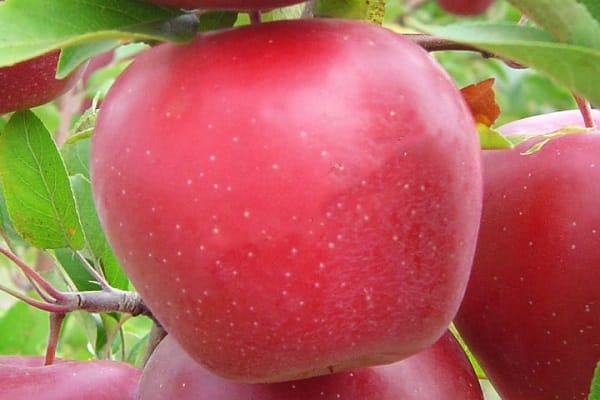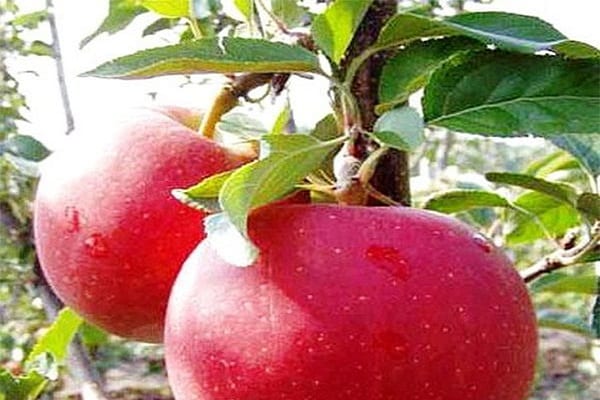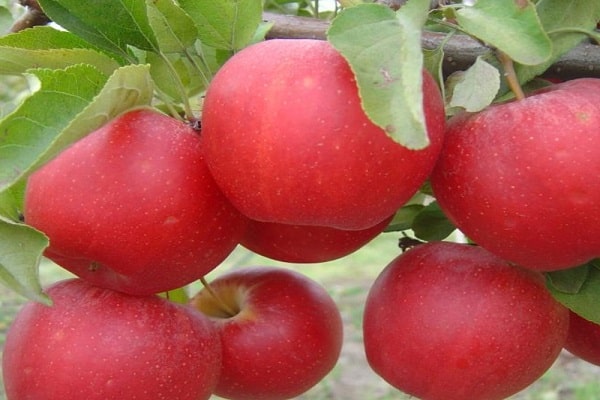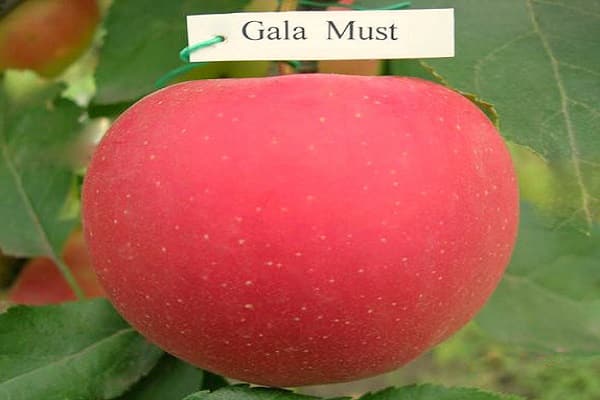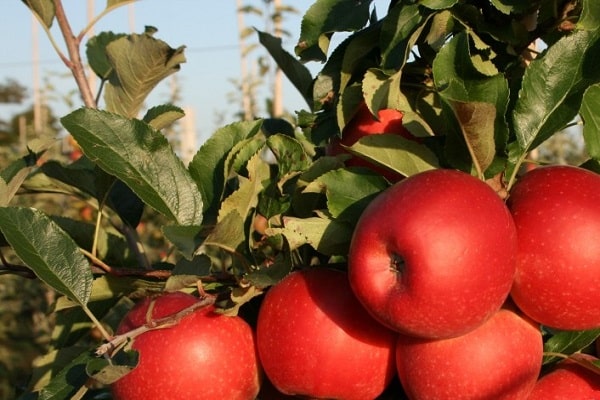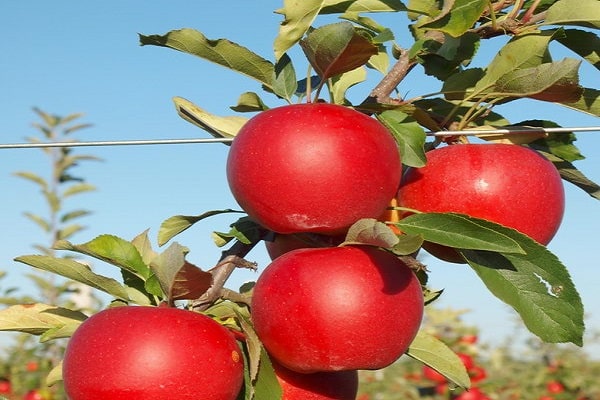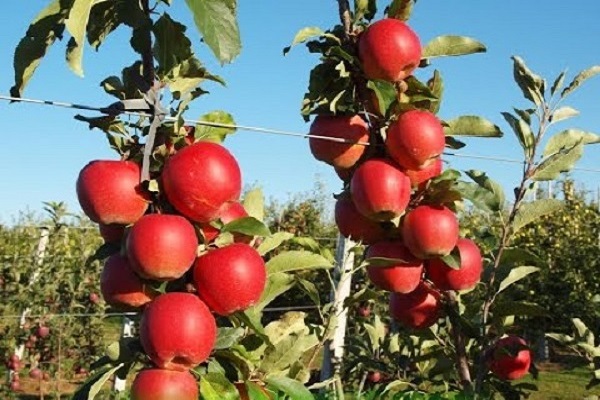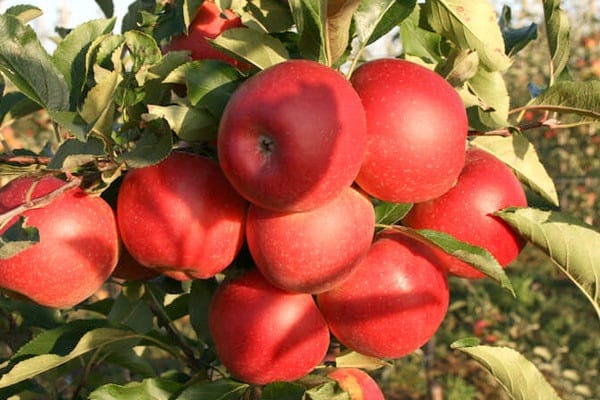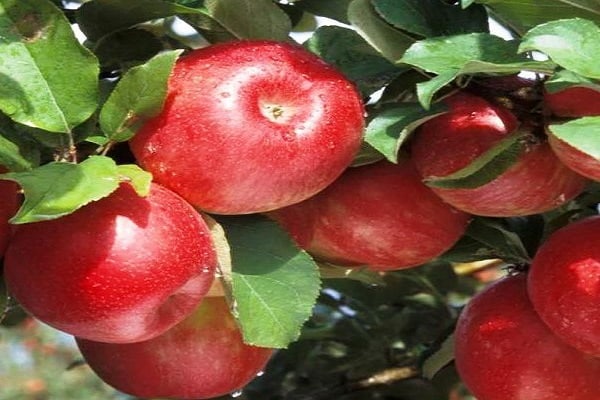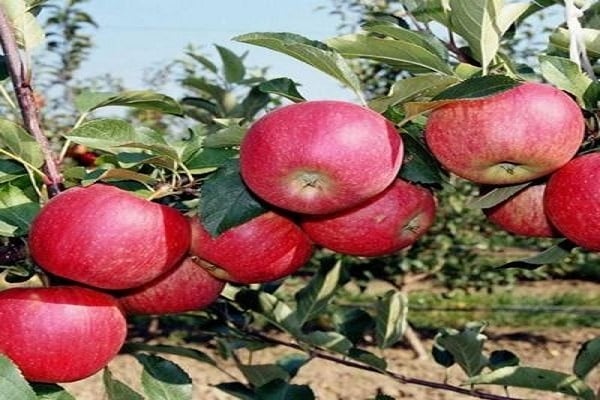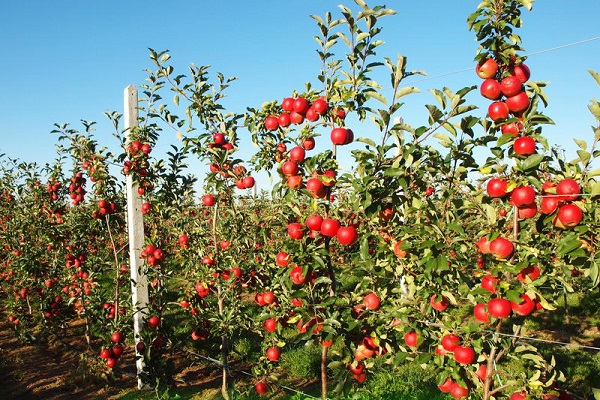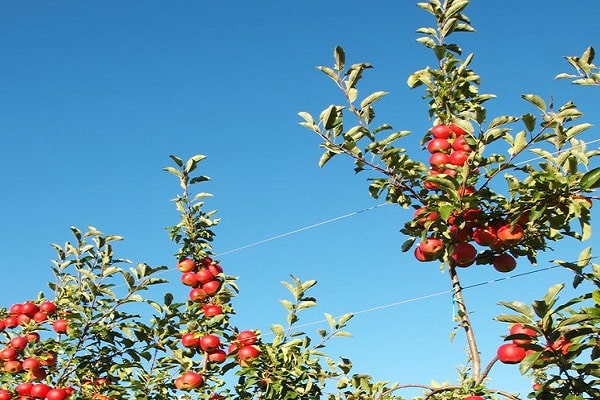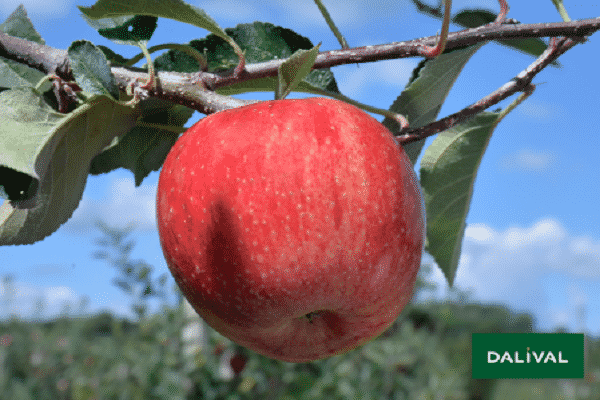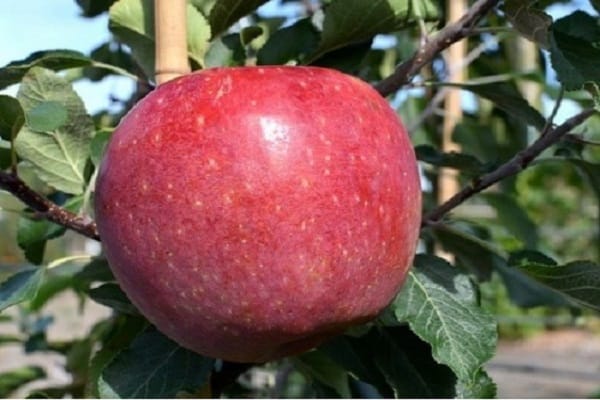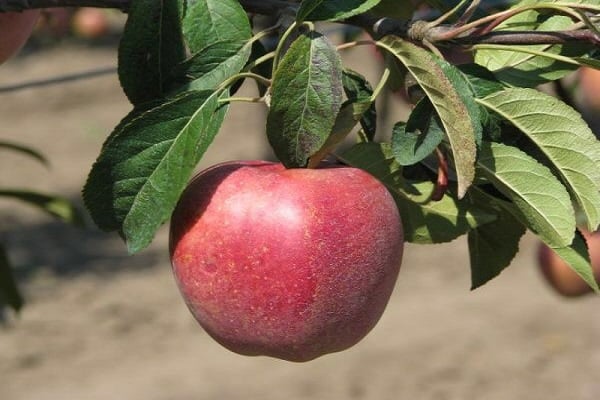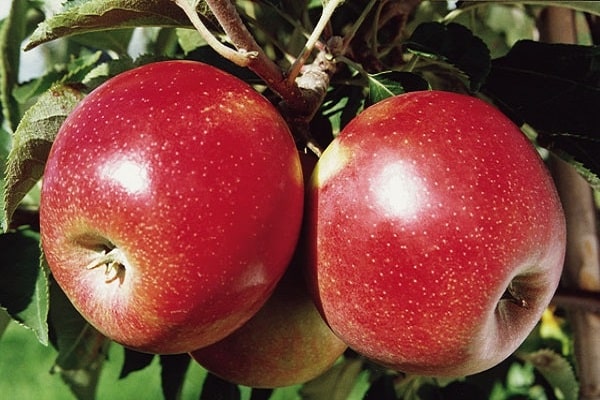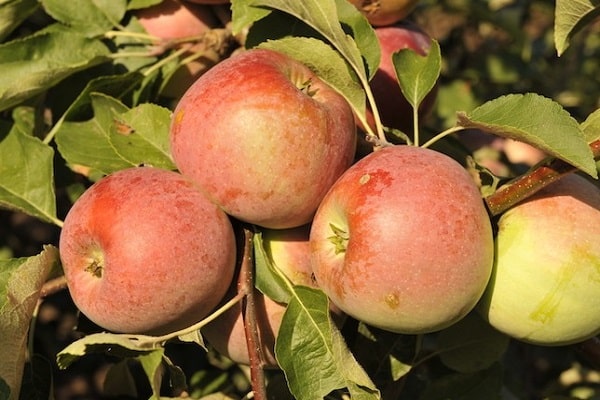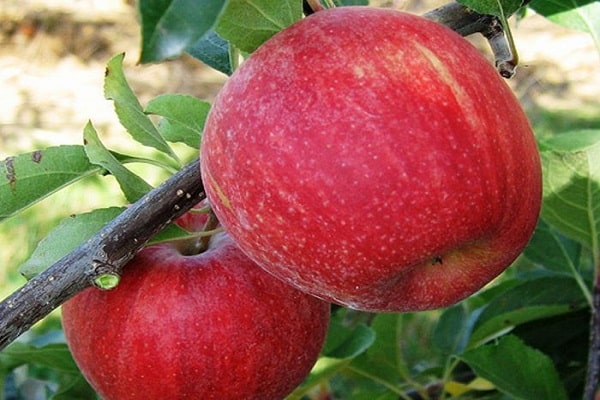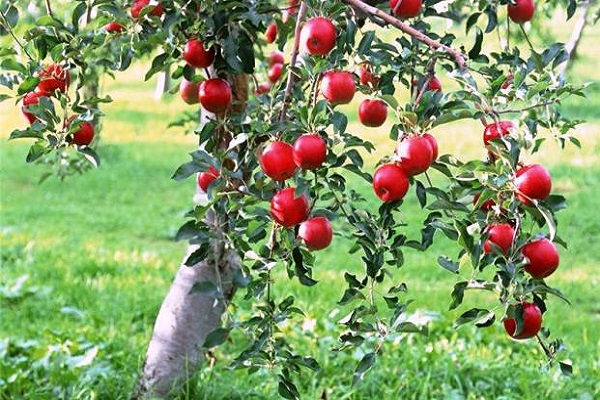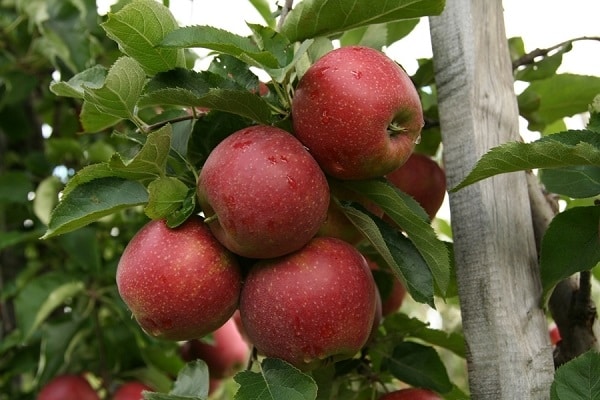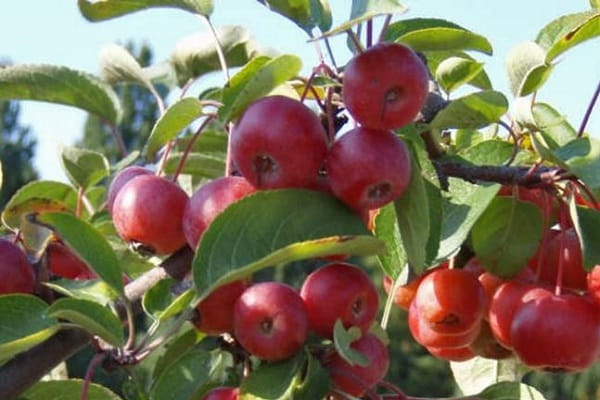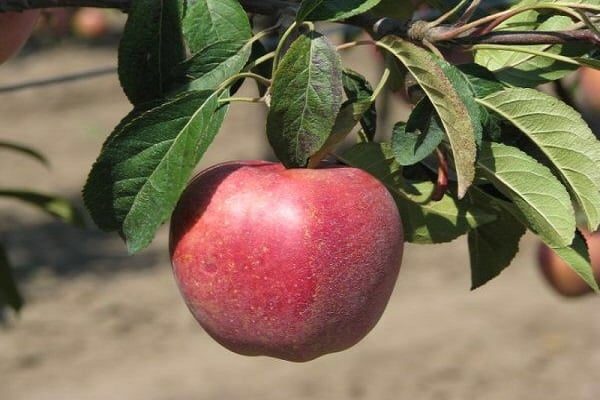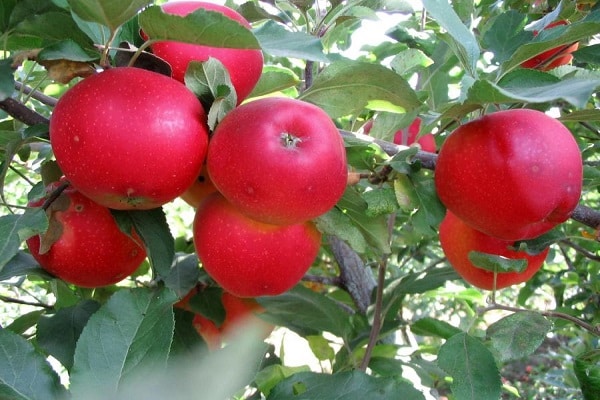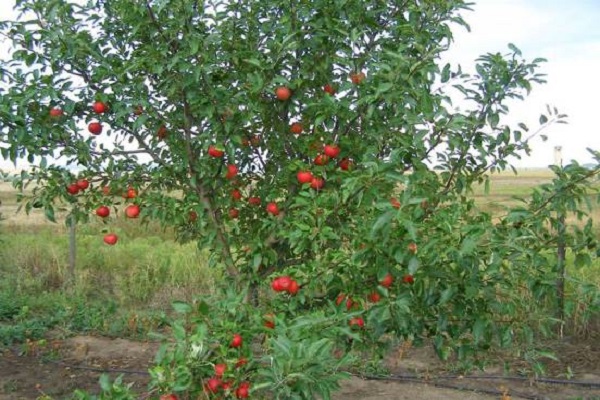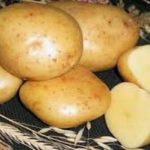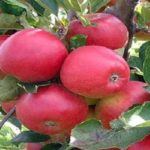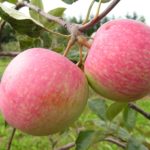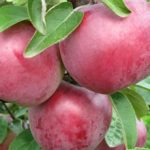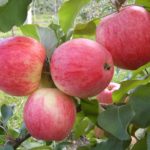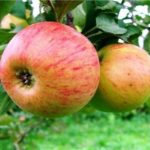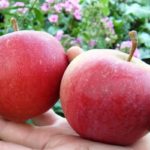The Gala apple tree variety has been winning the hearts of gardeners for many years. The hybrid was first bred in New Zealand, and a few years later it spread throughout the world. Apples of this variety are most often found on store shelves due to their beautiful red skin color and fruit shape. From the parent hybrid, another 20 similar varieties with improved characteristics were subsequently bred.
- Description and characteristics of the Gala Mast apple tree
- Favorable areas for cultivation
- Tree height
- Crown width
- Productivity
- Tasting assessment
- Winter hardiness
- Disease resistance
- Lifespan of a tree
- Rules for planting seedlings
- Landing time
- Selecting a location
- Choosing a quality seedling
- Planting process
- How to care for an apple tree
- Trimming
- Watering
- Feeding
- Preparing for winter
- Diseases and pests
- Variety options
- Brookfield
- Galaxy
- Delicious
- Costa
- Cube
- Mondial
- Natalie
- Prince
- Red
- Royal
- Growing in different regions
- Useful tips
Description and characteristics of the Gala Mast apple tree
Before buying a Gala apple tree seedling, you should study the characteristics of the tree and its description. First of all, you should pay attention to favorable areas in which the tree will grow best. In addition, important characteristics are the size of an adult tree and yield.
Favorable areas for cultivation
The most favorable regions for growing the Gala Mast apple variety are forest-steppes and steppes. The variety is planted in the Central and Volga regions, where the soil is predominantly chernozem type. The hybrid also grows well in the Caucasus regions. Trees respond positively to subtropical climates. But in the North, Gala Mast is unlikely to take root due to the harsh climatic conditions.
Tree height
The hybrid belongs to medium-sized apple trees, reaching a height of 3 to 4.5 m. Even in old age, an apple tree can reach a height of 5 m. To prevent the tree from growing too tall, it is pruned every year.
Crown width
The shape of the crown resembles a circle flattened at the top and bottom. The crown itself is spreading, the branches are located unevenly. The crown width matches the selected rootstock.
Productivity
The Gala apple tree variety is a fruitful one. Up to 90 kg of apples are harvested from one tree. Since the tree tends to overload, it is necessary to regulate the number of inflorescences and ovaries. Fruiting is at the same level every year. Those apple trees that have been growing for a long time produce less harvest, and the tree does not bear fruit every year.
Tasting assessment
Apples of this variety are considered one of the most delicious. The tasting score is 4.7 out of 5 points. The pulp is dense and juicy, fine-grained. The peel is red-orange. The fruits are rich in microelements and vitamins, especially ascorbic acid.
Winter hardiness
Trees tolerate frosty winters when temperatures drop to -30 degrees. But provided that this temperature will remain for several days in winter. If all winters in the growing region are frosty, the tree will not be able to survive a strong drop in temperature.
Disease resistance
There is no apple variety that is 100% resistant to fruit tree diseases. The Gala hybrid has average resistance to scab and bacterial cancer. The tree is immune to powdery mildew and European cancer. Regular preventive measures will prevent the appearance of diseases on the apple tree.
Lifespan of a tree
Apple trees are long-lived plants and can grow up to 150 years. Naturally, fruiting decreases with age.
Rules for planting seedlings
Planting seedlings is an important stage during which the foundation for the yield and health of the tree is laid. Planting a Gala apple tree seedling is no different from planting seedlings of other varieties. The main thing is to adhere to the rules of agricultural technology when planting a bush in a permanent place.
Landing time
The optimal time for planting in spring is considered to be the period from the first days of April to the beginning of May. In autumn, seedlings are planted 20-25 days before the onset of autumn frosts. The seedling must have time to take root in a new place before frost hits.
Selecting a location
The first thing you need to remember when planting the Gala variety on your site is light. The hybrid prefers to grow in open sunny areas away from darkness.If you plant a plant in the shade, the yield will decrease, and the apple tree will not grow well. Due to the lack of sunlight, the number of buds decreases, which in turn leads to poor flowering and the formation of ovaries.
The apple tree tolerates partial shade, but fruiting in this case will begin later after planting.
Gala prefers to grow on loamy, sandy loam soils or black soil. It is recommended to give preference to elevated areas where melt water will not accumulate in the spring. The Gala apple tree prefers to grow in dry soils without excess moisture.
Choosing a quality seedling
Before purchasing a seedling, it is carefully inspected. The seedling should not show signs of damage, dry branches, stains or traces of insects. It is also worth paying attention to the root system. The roots should be elastic and strong, not broken. The trunk is straight, with dense bark.
Planting process
The process of planting a seedling takes place in several stages. Stages of planting a Gala apple tree:
- Dig up the soil, dig a hole to a depth of 1 m.
- Add mineral fertilizers for growth, rotted compost and wood ash.
- Mix the fertilizers with the soil and leave the hole as is for 2-3 weeks.
- After 2-3 weeks, they begin to plant the seedling.
- Place the seedling in a hole, carefully straighten the roots and bury the seedling with soil.
- Compact the soil around the trunk.
- Water generously with warm water.
- Then drive a stake next to the seedling and tie the trunk to it.
An apple tree is planted one month before the onset of night frosts so that the seedling has time to take root and survive the winter.
How to care for an apple tree
Caring for an apple tree includes watering, fertilizing, loosening the soil and preventing diseases and insects. It is also important to take the time to shape the crown every year. Proper care helps increase productivity.
Trimming
Young branches in the spring are cut to 1/3 of the entire length of the branch. Such measures allow you to regulate tree overload and increase productivity.
Watering
The Gala apple tree does not like excessive humidity. It is enough to water the tree twice a month. If the summer is rainy, then watering is completely abandoned. Young seedlings are watered once a week.
Feeding
The first feeding is applied at the stage of bud formation. Use nitrogen-containing fertilizers, humus or ammonium nitrate. The second time fertilizer is applied in the summer, in the first ten days of June. Phosphorus and potassium, slurry, chicken manure or urea are added. The third feeding is applied in August or September. The last feeding is carried out before the onset of cold weather. In the fall, humus, peat, phosphorus and potassium fertilizers, humus and compost are added.
Preparing for winter
With the onset of autumn, the soil around the trunk is dug up to a depth of 30-40 cm. The soil is covered with peat. The apple tree does not need active preparation for winter.
Diseases and pests
With the onset of spring, the lower parts of the trees are whitened with a solution of lime. Then, until the buds bloom, the trees are sprayed with a 3% solution of Bordeaux mixture. After the apple tree fades, it is treated with copper oxychloride.
Variety options
After the Gala hybrid was created, based on it, breeders created more than 20 other varieties with improved characteristics.
Brookfield
Brookfield begins to ripen in early September. With proper care, the variety is characterized by high productivity. The collected fruits are stored until the onset of winter.
Galaxy
Apples are a rich red hue, with dark stripes. Ripens a little earlier than the Gala variety. The average fruit weight is 150-190 g.The harvested crop is stored for up to 4 months. The pulp has a sweet and sour taste.
Delicious
This variety is not as common as all other hybrids. The characteristics are similar to the parent variety Gala.
Costa
The taste is similar to Gala Mast, only the apples are slightly smaller in size. On average, the weight of the fetus is up to 150 g.
Cube
The hybrid was bred by breeders from Krasnodar. The peel of the fruit is light yellow in color, weighing from 140 to 180 g.
Mondial
It was first bred in 1978 and quickly gained popularity among gardeners. The shape is more elongated in contrast to the parent variety.
Natalie
In terms of taste and shade of the peel, Natalie is no different from Gala Mast, only the apples are slightly smaller in size.
Prince
Prince is another name for the Gala Mast variety.
Red
The skin of the apples is red. The fruits ripen in the second ten days of August. Stored until March. It is characterized by average resistance to powdery mildew and scab.
Royal
The fruits are shaped like Gala. The peel is yellow-red. It was this variety that was first bred on the basis of Gala Mast.
Growing in different regions
The Central regions and the Volga region are considered the most suitable for growing Gala apple trees. Winters in these latitudes are not so frosty. The Krasnodar region is also suitable for cultivation, because it was for this region that the variety was zoned. In addition, most of the hybrid clones were created in the Krasnodar region. In northern latitudes, cultivation is problematic due to the fact that the trees are not frost-resistant, and some die in winter.
Useful tips
The future harvest depends on the correct planting and care of the apple tree. Tips for growing apple trees:
- When planting a seedling, the root collar should not be buried. It should be located 2-3 cm above the ground.
- If the soil is sandy, then lay a 10 cm layer of clay at the bottom of the hole, and then lay out a thick layer of peat.
- Manure is applied in large quantities in the fall.
- In spring, apple trees require nitrogen-containing fertilizers.
- Preventive measures to prevent the development of diseases of fruit trees begin in March.
If you follow the rules for planting seedlings and caring for them, in a few years the apple tree will bear a rich harvest. It should be remembered that without care, fruiting will be poor, and the apple tree itself will grow poorly.

